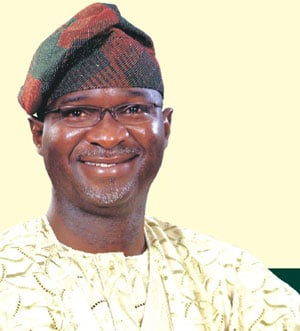The Organised Private Sector of Nigeria (OPS) has asked the national assembly to withdraw the proposed amendment to the customs, excise and tariff bill.
On November 11, the senate advanced a bill seeking to earmark excise duties collected from non-alcoholic, carbonated, and sweetened beverages for health-related programmes and infrastructure across the country.
The sponsor of the bill, Ipalibo Harry-Banigo, senator representing Rivers west, said the amendment was not merely fiscal in nature but a public health investment to ensure that existing excise revenues were redirected toward improving healthcare delivery and promoting healthy living among Nigerians.
In a statement on Thursday, OPS said the draft currently before lawmakers is misaligned with the federal government’s fiscal reform agenda and contains legal and administrative gaps.
Advertisement
The OPS — made up of the Nigerian Association of Chambers of Commerce, Industry, Mines and Agriculture (NACCIMA), Manufacturers Association of Nigeria (MAN), Nigeria Employers’ Consultative Association (NECA), National Association of Small and Medium Enterprises (NASME) and the National Association of Small Scale Industrialists (NASSI) — stated its position on Thursday during a public hearing on the bill, which recently passed second reading.
In a paper presented at the session, the private sector group said it supports the government’s revenue and public health goals but warned that policies must be holistic, harmonised and context-appropriate.
The OPS said such policies must strengthen health outcomes without undermining jobs, investment, affordability or industrial stability.
Advertisement
The group said Nigeria’s excise framework has become increasingly fragmented, with new levies introduced without assessing their combined effects on production, backward integration, investment, employment, exports and inflation.
According to the private sector, the result could be unintended consequences that undermine President Bola Tinubu’s economic reforms without delivering measurable public health benefits.
The OPS argued that a sharp excise increase or the introduction of a new levy would impose a significant economic burden on businesses and consumers without evidence of improved health results.
According to the group, the proposed amendment introduces mathematical, legal and administrative contradictions, worsens an already fragmented fiscal environment, and conflicts with national industrialisation priorities, including the Nigerian sugar master plan.
Advertisement
The private sector group also warned that the amendment could weaken the beverage value chain — one of Nigeria’s biggest non-oil revenue contributors and a major employer.
“Nigeria’s non-alcoholic drinks sector is a critical economic stabiliser, supporting 1.5 million jobs, driving backward integration under the NSMP II, and contributing 40 – 45% of gross revenues as taxes and yet already operating under severe macroeconomic strain and thin margins,” OPS said.
‘EXCISE AMENDMENT BILL MAY WEAKEN STATES’ REVENUE’
The group said advancing the bill without coordination with the ministry of finance, the presidential fiscal policy and tax reform committee, the federation allocation account committee (FAAC), and other relevant agencies contradicts the president’s emphasis on stability, predictability, simplicity and non-disruptive tax reform.
Advertisement
OPS also cited global and local evidence showing that steep or unclear sugar-sweetened beverage (SSB) taxes in low-income economies often result in job losses, MSME contraction, lower government revenue and no measurable health benefits — while widening inequality and driving growth of the informal market
“The amendment bill contains internal contradictions (“20% levy per litre of retail price”) that are impossible to implement consistently. Over-taxation may shrink the formal sector, reduce VAT and CIT collections and shift consumers to informal markets,” the group said.
Advertisement
“The bill may cut medium-term FAAC distributions and weaken state-level revenue stability.”
Also, the private sector group said it remains open to continued engagement with lawmakers, fiscal authorities, and civil society to ensure that any revision of the excise framework supports investment, protects jobs and sustains long-term revenue stability.
Advertisement






